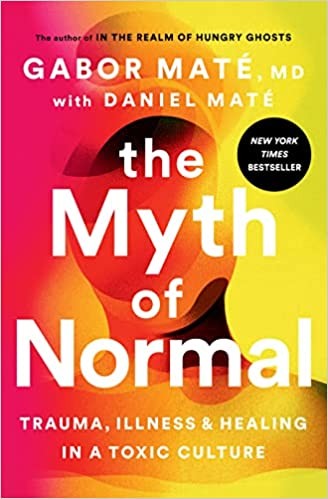Catship reviewed The Myth of Normal by Gabor Maté
It's good
I was expecting a bit too much, but it's certainly worth reading. It's neither revelatory nor very inspiring to me, but one of those things where it's just nice to have it all said in one place to think about the connections. There's a few chapters in the middle that kinda list me, I was eager to get to the end with the bits about healing. And those I'll have to get in paper form to properly engage with. All in all I'm glad I read it.
I was expecting a bit too much, but it's certainly worth reading. It's neither revelatory nor very inspiring to me, but one of those things where it's just nice to have it all said in one place to think about the connections. There's a few chapters in the middle that kinda list me, I was eager to get to the end with the bits about healing. And those I'll have to get in paper form to properly engage with. All in all I'm glad I read it.


